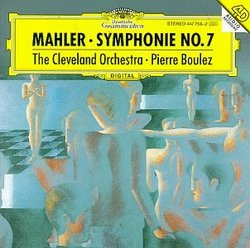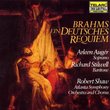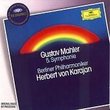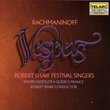| All Artists: Gustav Mahler, Pierre Boulez, The Cleveland Orchestra Title: Mahler: Symphonie No. 7 - The Cleveland Orchestra / Pierre Boulez Members Wishing: 0 Total Copies: 0 Label: Deutsche Grammophon Release Date: 9/17/1996 Genre: Classical Style: Symphonies Number of Discs: 1 SwapaCD Credits: 1 UPC: 028944775624 |
Search - Gustav Mahler, Pierre Boulez, The Cleveland Orchestra :: Mahler: Symphonie No. 7 - The Cleveland Orchestra / Pierre Boulez
 | Gustav Mahler, Pierre Boulez, The Cleveland Orchestra Mahler: Symphonie No. 7 - The Cleveland Orchestra / Pierre Boulez Genre: Classical
This is a controversial perfomance. Pierre Boulez made his reputation as a conductor famous for his analytical, antiromantic approach, but in later years he seems to have mellowed. Not here, though. In many ways, the Sev... more » |
Larger Image |
CD DetailsSynopsis
Amazon.com This is a controversial perfomance. Pierre Boulez made his reputation as a conductor famous for his analytical, antiromantic approach, but in later years he seems to have mellowed. Not here, though. In many ways, the Seventh is Mahler's most modern symphony. The emotional impact of the music is less important than texture, orchestration, and musical architecture. In short, it's a highly abstract piece, and that's exactly how Boulez treats it. That means a relatively slow tempo in the first movement to achieve maximum clarity, and quick speeds in the two "night music" movements, minimizing their mysterious and romantic qualities, respectively. It's not an approach that everyone will warm to, but because classical-record collecting means having more than one version of the same music, it's always rewarding to sample different interpretations--provided that they're expressed with maximum conviction. And about this last point, there's no doubt at all. --David Hurwitz Similarly Requested CDs
|
CD ReviewsAn Essential Mahler Seventh classicalfanindc | Washington DC | 08/30/2003 (4 out of 5 stars) "This is probably Pierre Boulez's most successful Mahler recording. I have enjoyed all of his previous Mahler recordings, but this is the finest by a fair margin.This is the best-played Mahler Seventh on disc. The brass is not perfect (the playing lacks confidence, it is not very expressive, and it lacks tonal opulence) but just about every other section of the orchestra offers playing as good as can be heard anywhere in the world.Boulez offers the most lucid performance of this work ever available on disc. He reveals the symphony to be a perfectly-constructed and perfectly successful symphony. Not even Abbado or Haitink, both excellent at serving Mahler's structural requirements in the Seventh, offered performances as natural and lucid as Boulez.The downside? Well, the fifth and final movement lacks drive, and does not offer much of a sense of culmination. This is the only serious deficiency in the disc.Nevertheless, this is now one of the four essential recordings of this work (even though the Seventh has still never enjoyed a truly great recording). The Boulez nicely supplements Bernstein's second recording of the work (Bernstein nails the final movement, but the playing of the New York Philharmonic requires lots of indulgence), Abbado's first recording (with Chicago) and the overlooked but truly excellent Sinopoli." Music speaks for itself Arnout Koeneman | the netherlands | 09/01/2003 (5 out of 5 stars) "Boulez is in my opinion one of the best Mahler conductors. Many conducters lose themself in over-interpret the score at the cost of some natural musical flow. Boulez (almost) always picks the right tempi. Yes his first movement is slower than many other, but he builds this movement more logical and natural than say Solti or Inbal, without losing its tension. I like the tempo choices very much: less contrasts in this movement than usual means a bigger tension throughout. Emphasizing these contrast wears the listener out or the conductor himself. Solti sounds spectacular at first, but the playing in the first movement is definitely tiresome, sometimes at the level of sheer noise - the direct recording is blamed but also Solti's conducting wich emphasizes brilliance too much. I like Boulez' introvert approach much better. The first nachtmusik is quick and light, just like it should be played (to my taste). The same with the second, why do most conducters play these pieces as if they are grand enigmas???, giving too much drama to the score, as if Mahler was unlucky and troubling all the time. The scherzo is beautifully delicate and intense played. Solti, however impresses me more in this piece, his reading is more "schattenhaft", played with more attack, the spooky elements are somewhat better accentuated. With Boulez these are a tiny bit underplayed, but musically you can't fault Boulez and the delicate approach fits his introvert view of this piece better. Listening to Boulez is always listening to music only, not listening to the conductors decisions. His phrasing is so natural and the music has its drama, spirit and warmth itself; it doesn't need an extra boost. The finale is perhaps the most difficult piece of Mahler to listen at. Not with Boulez, his approach is again natural and therefore I finally understand this piece better. Complex music becomes easy listening in Boulez' hands and this doesn't mean the music sounds cold, on the contrary: I never heard the first movement played so lyrical Just "playing the notes" seems more melodic than struggling with them. This record is a must have next to Boulez' other great recordings of Mahler, Bartok, Ravel and Debussy (perhaps only his Bruckner 8 misses some spirit)" A surrealist glacial landscape. THE BLUEMAHLER | 01/31/2005 (4 out of 5 stars) "Leave it to enfant terrible Pierre Boulez to come up with the single most radical reading of the Mahler 7th.
This is, in every way, as radical a performance as his Parsifal was, and there may be parallels to be drawn there. Most appropriately (since this IS, along with DLVDE, Mahler's most progressive,finished work and is certainly his most surreal),Boulez approaches this sometimes unapproachable composition as a majestically structured abstract landscape. Many years ago,he gave us a much needed,similar approach to Wagner's valedictory work. It was a no nonsense recording. Atheist Boulez would have none of the psuedo spirituality usually afforded this work and looked it straight in the eye as a modernist musical drama. Boulez has expressed doubts about the Wagnerian texts(just as he has expressed doubts about the vocal works of his one time teacher Messiaen),but not the musical structure and Boulez's Wagner seems to have paved the way for Boulez's Mahler. The two night music movements may lack mystery in the traditional sense, but they do have a Pierrot-like lyricism that suits this performance well. The cowbells in the first night music are merely submerged splashes of color and, likewise, the kitsch elements of the infamous scherzo are muted, transformed into cool toned brush strokes, bringing a painterly like coherence to the whole (so too with the rondo finale). Of course, we have long had Mahler cycles from Horenstein, Bernstein, Solti, etc that have given us the 'romantic' Mahler. To be frank, the market is saturated with THAT type of Mahler cycle. For me, this is one of THE vital 7ths,along with Scherchen,Barenboim and Klemperer. The completion of Boulez's 'progressive only' Mahler is eagerly awaited, if for no other reason, than as an opposing viewpoint and, as an opposing viewpoint, Boulez's Mahler isn't just a desirable one for the shelf space, it's a damned necessary one. " |

 Track Listings (5) - Disc #1
Track Listings (5) - Disc #1








